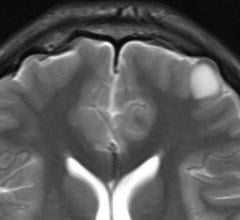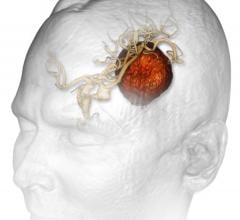If you enjoy this content, please share it with a colleague
Brainlab
RELATED CONTENT
The American Society for Radiation Oncology (ASTRO) annual meeting held last October drew a crowd of more than 11,000 attendees.
Jan Medical announced today that it has secured $7.5 million in Series C funding from Brainlab Inc. Funds will be used to complete ongoing clinical trials and filing of product de novo with the U.S. Food and Drug Administration (FDA) and CE Mark registration in the EU for BrainPulse, a new diagnostic tool designed to rapidly and reliably help detect abnormal neurological conditions including concussion and stroke.
Brainlab showcased cranial Elements for stereotactic radiosurgery (SRS) at the 57th annual meeting of the American Society for Therapeutic Radiology and Oncology (ASTRO). Dovetailing with the society’s 2015 theme, “Technology Meets Patient Care,” Elements provide indication-specific and intelligent workflows for stereotactic radiosurgery that automate the procedure so caregivers can spend more time with patients and less time on technology.
Brainlab announced a major sales milestone with its Airo Mobile Intraoperative CT (computed tomography) scanner, with acquisitions by 50 hospitals in just a little over a year since the first shipment. University of Utah Health Care and Henry Ford Hospital round out the facilities to have already acquired Airo for enhanced surgical decision-making.
Brainlab announced that its Automatic Brain Metastases Planning software has been used for the first time in the United States at Jefferson Hospital for Neuroscience in Philadelphia.
Leading radiosurgery experts presented their experiences with Automatic Brain Metastases Planning software at the Novalis Circle Symposium during this year’s American Association of Physicists in Medicine (AAPM) annual meeting and exhibition. The software consistently and rapidly generates radiosurgery plans, allowing clinicians to efficiently treat up to 10 multiple brain metastases in one session while helping minimize radiation exposure to healthy surrounding tissue.
The ECRI Institute released a new techIQ brief on key factors to consider when purchasing a linear accelerator (linac) for external beam radiation therapy. The report is a compilation of results from a survey of hundreds of users of linac-based radiosurgery systems; participants were asked to rate the functions and features of the four major linac vendors: Accuray, Brainlab, Elekta and Varian Medical Systems.
Brainlab announced first patient treatments in March on a fully integrated radiation oncology solution that combines its ExacTrac patient positioning with the Elekta Versa HD linear accelerator (LINAC). Working in synergy, these technologies determine positioning and treatment accuracy for cancer patients.
Today, treatment planning — the heart of radiation therapy systems — is almost entirely computer based, and is designed to help increase productivity by simplifying data for clinicians, making workflow smooth and seamless. This is key to helping improve patient outcomes. As technology progresses, so do treatment planning systems.
Brainlab expanded on its “Elements” strategy for treatment of brain and spine tumors with the introduction of automated stereotactic radiosurgery (SRS) planning tools. Announced at the third European Society for Therapeutic Radiology and Oncology (ESTRO) Forum in Barcelona, Spain, the SRS tools enable on-the-fly generation of consistent treatment plans for volumetric arc therapy (VMAT) delivery.


 February 03, 2016
February 03, 2016 





